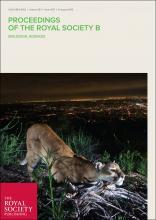
Social Connectedness Is Associated with Fibrinogen Level in a Human Social Network
Abstract
Socially isolated individuals face elevated rates of illness and death. Conventional measures of social connectedness reflect an individual’s perceived network and can be subject to bias and variation in reporting. In this study of a large human social network, we find that greater indegree, a sociocentric measure of friendship and familial ties identified by a subject’s social connections rather than by the subject, predicts significantly lower concentrations of fibrinogen (a biomarker of inflammation and cardiac risk), after adjusting for demographics, education, medical history and known predictors of cardiac risk. The association between fibrinogen and social isolation, as measured by low indegree, is comparable to the effect of smoking, and greater than that of low education, a conventional measure of socioeconomic disadvantage. By contrast, outdegree, which reflects an individual’s perceived connectedness, displays a significantly weaker association with fibrinogen concentrations.
Citation:
D.A. Kim, E. Benjamin, J.H. Fowler, and N.A. Christakis, "Social Connectedness Is Associated with Fibrinogen Level in a Human Social Network" Proceedings of the Royal Society B, 283: 20160958 (August 2016) doi: 10.1098/rspb.2016.0958